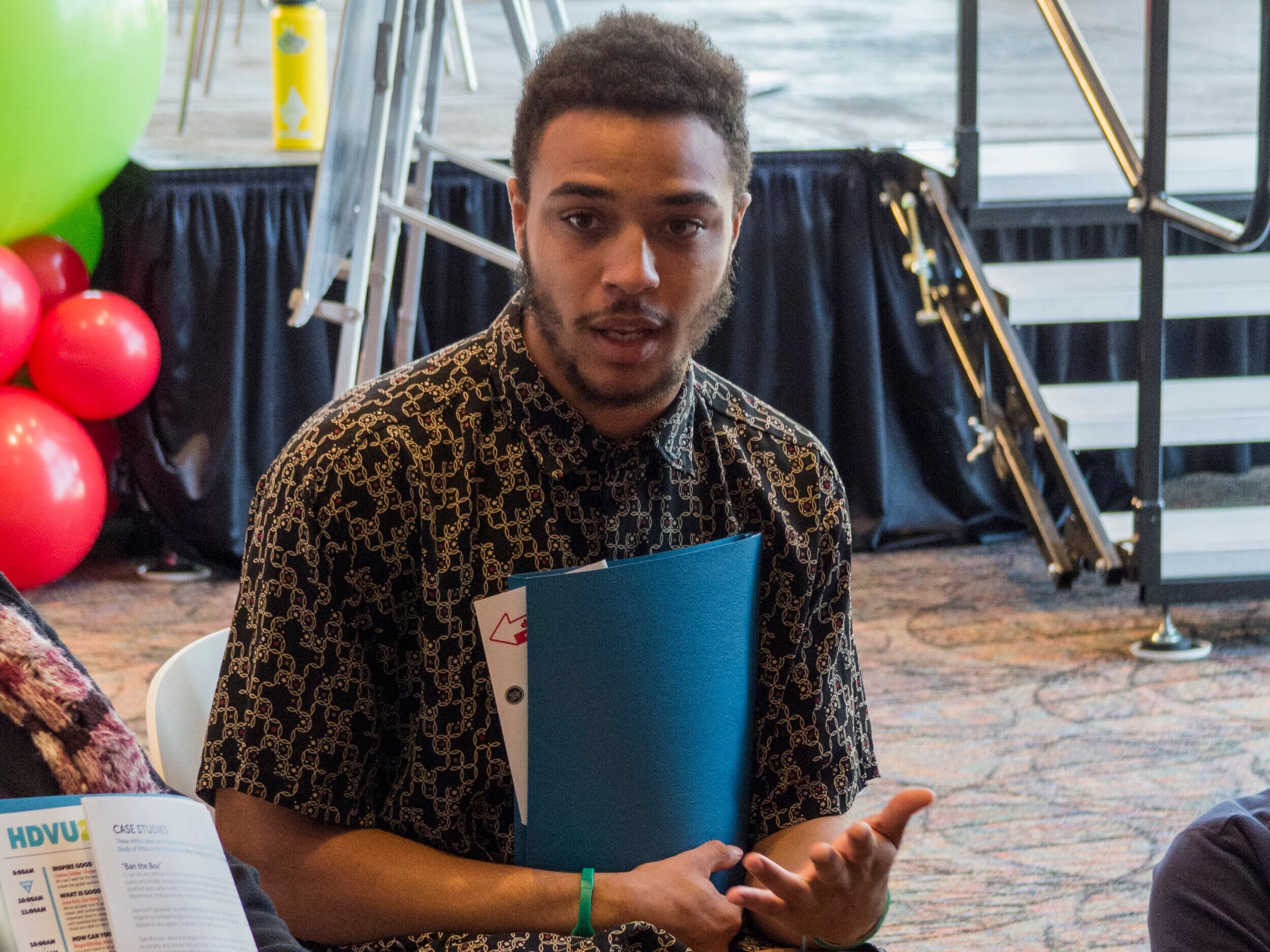Marcus Wade-Prince on reimagining education
Today, he’s a passionate advocate for learner-centered education and a freshman at Antioch University in Ohio. But just a few years ago, Marcus Wade-Prince completely gave up on his own education.
All because of a broken bone.
“I broke my wrist my junior year, and I realized my teachers didn’t really care about me. I was done with school,” he says.
Marcus Wade-Prince collaborates with a small group during day two of Hands Down, Voices Up. Marcus is a board member for Education Reimagined and a student at Antioch University.
As an athlete, Marcus felt his value to the school was predicated on his physical abilities. When he couldn’t compete, he lost faith in himself and the value of learning.
Then a teacher floated an idea. What about another school? Specifically, Eagle Rock School and Professional Development Center for struggling adolescents.
“I was like, what’s an Eagle Rock?” Marcus recalls.
Although it was not exactly around the corner from his home in California’s San Fernando Valley, Marcus soon learned that the Colorado-based school might be a good option for him. Eagle Rock is a non-profit educational reform organization that operates a year-round, residential high school in the hills of Estes Park. Students are responsible for their travel to and from the school, but otherwise, tuition, room and board are all covered.
For Marcus, it was life-changing.
“What changed my feelings toward learning were the relationships that I had with people, the connections. That’s something that schools can change pretty easily,” he says. “Just that shift, to know that they care, that made me more motivated.”
Today, Marcus attends Antioch University and serves on the board of Education Reimagined, an organization dedicated to creating learner-centered education opportunities for every child across the country.
“The organization’s main role right now is as conveners, or as we like to think of it, as a spark. So we like to find the entities, the organizations, the schools, the communities, the stakeholders, that need to be in a room to move the movement forward,” says Marcus.
“What changed my feelings toward learning were the relationships that I had with people, the connections. That’s something that schools can change pretty easily.”
He attended the Hands Down, Voices Up summit with Monica Snellings, Vice-President of Communication at Education Reimagined, to “spread the movement” and develop more partnerships. What he found at the summit was a whole new network of passionate and engaged students who want to create change. He also joined a panel that explored what it means to do good in the world.
“I spoke about my sense of what good is, and how that’s complex and complicated and not a straight line,” he explains. “(Good) is a perspective and there are as many perspectives as there are people in the world. My point is that just by understanding and realizing someone’s perspective – yours isn’t the only one – you can actually collaborate, move forward and communicate more effectively with each other.”
By the end of the summit, Marcus rallied a group of students to discuss the issue of suicide prevention. The group looked at several preventative factors – including community, culture and support for yourself and others – and brainstormed real-world actions to prevent self-harm in youth.
For him, the most impactful part of Hands Down, Voices Up was meeting so many engaged and passionate people who truly care about doing good in the world.
“They don’t want a Band-Aid fix,” says Marcus. “I think that’s really inspiring.”
As Marcus knows first-hand, bandages do nothing for broken hearts. Success in education starts with empathy and vulnerability, he says, and once that trust is established with teachers and mentors, students are empowered to do good in their communities and the world at large.
For someone who went from hopeless to hopeful about education and all its possibilities, it’s a pretty inspiring outlook.
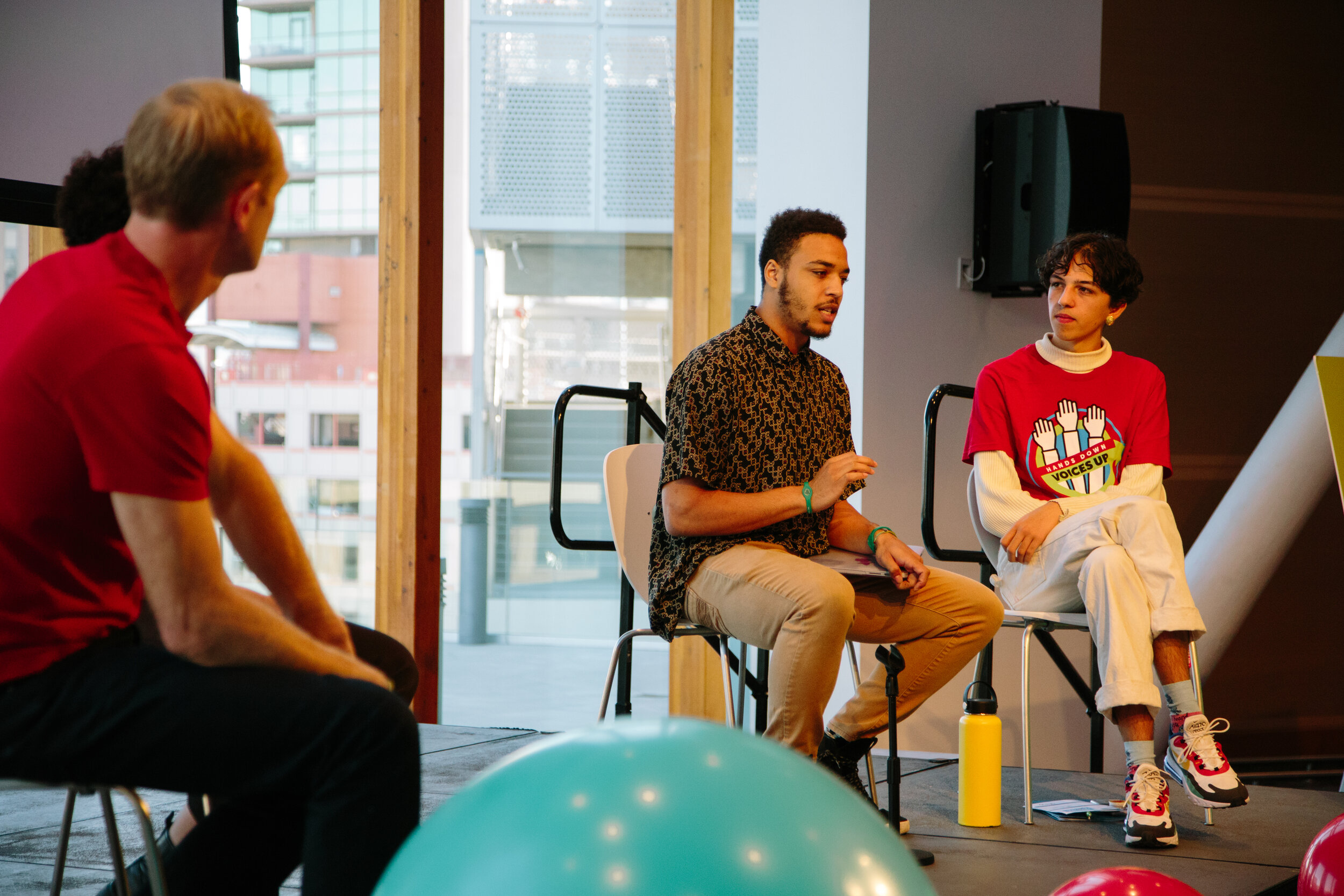
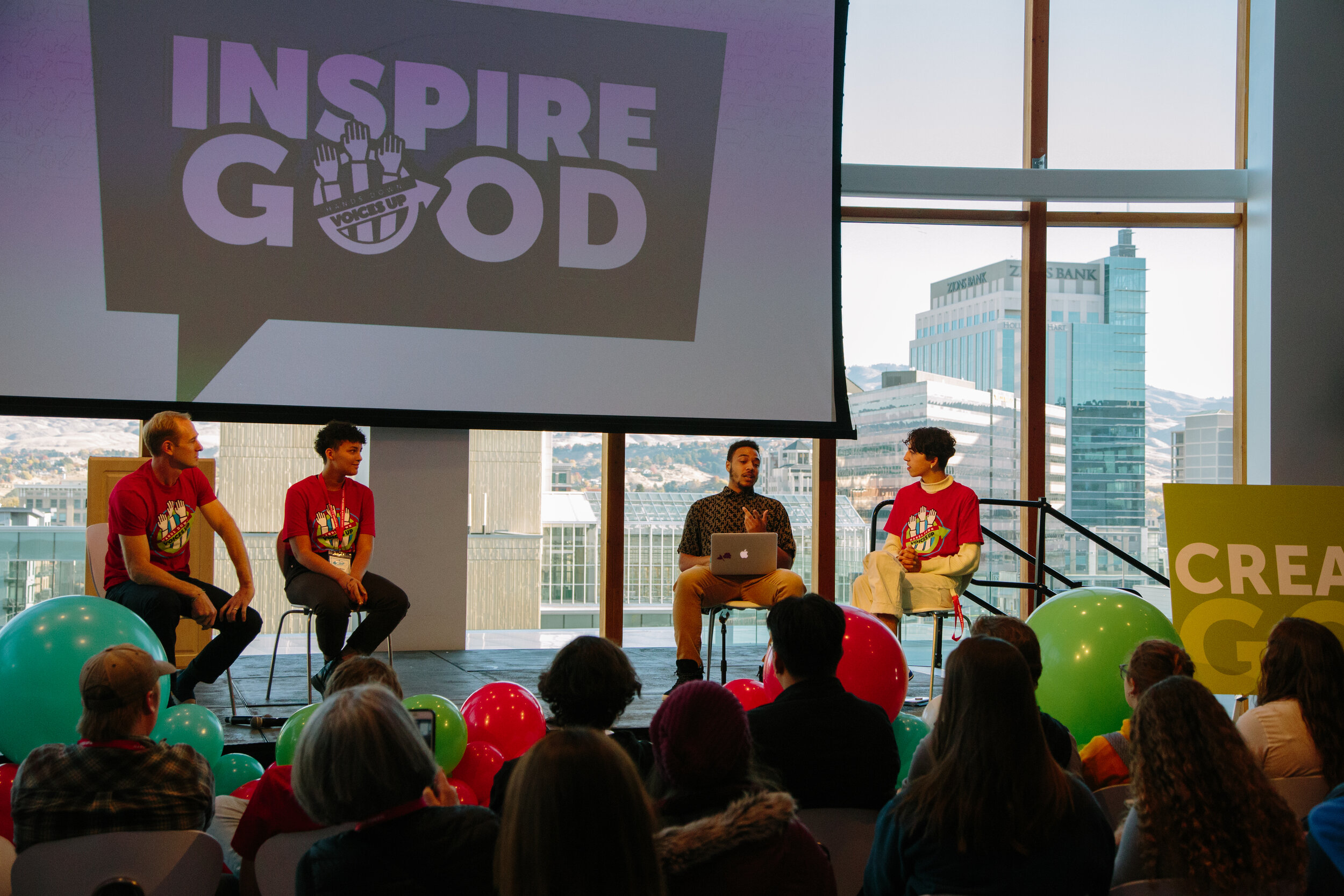
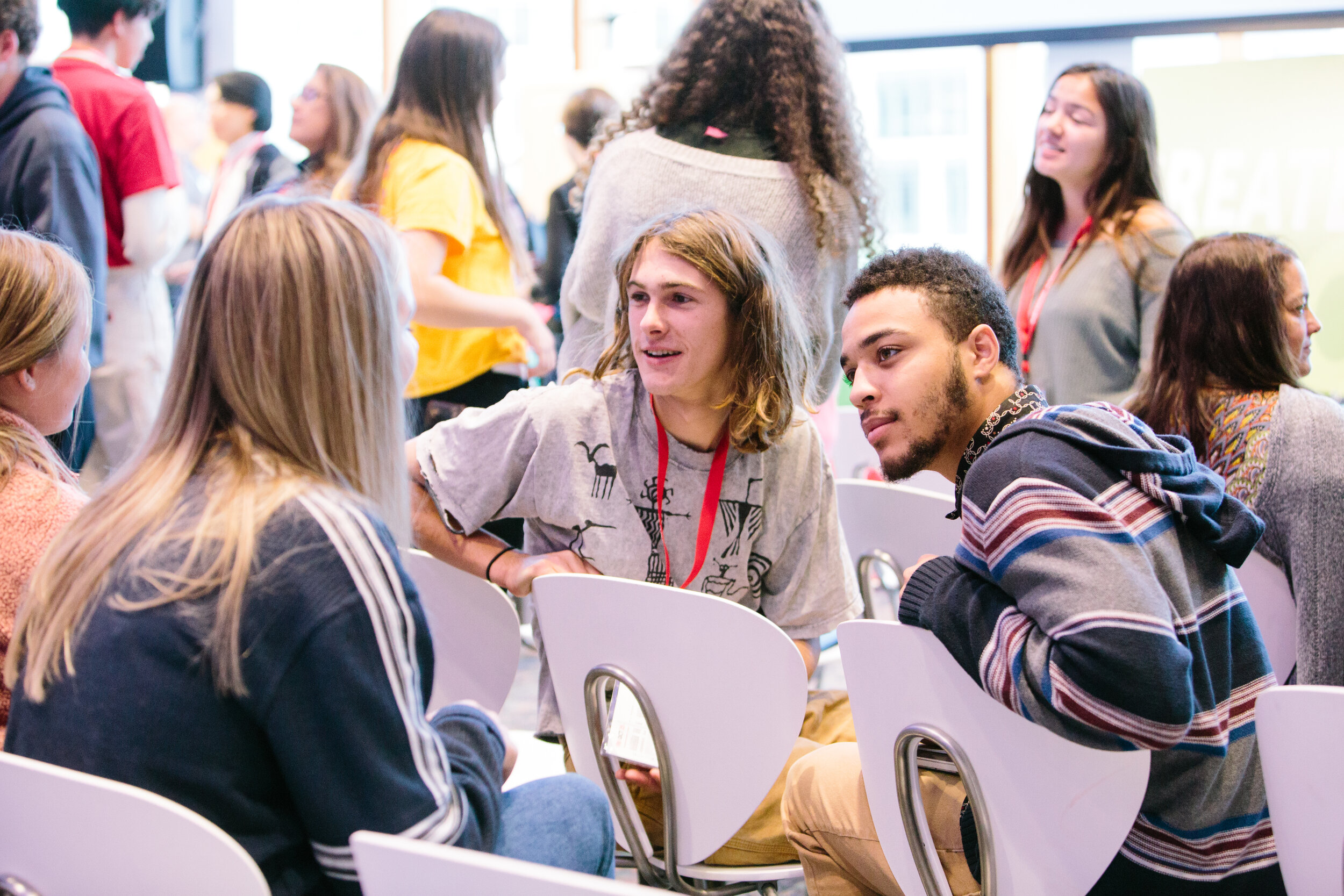
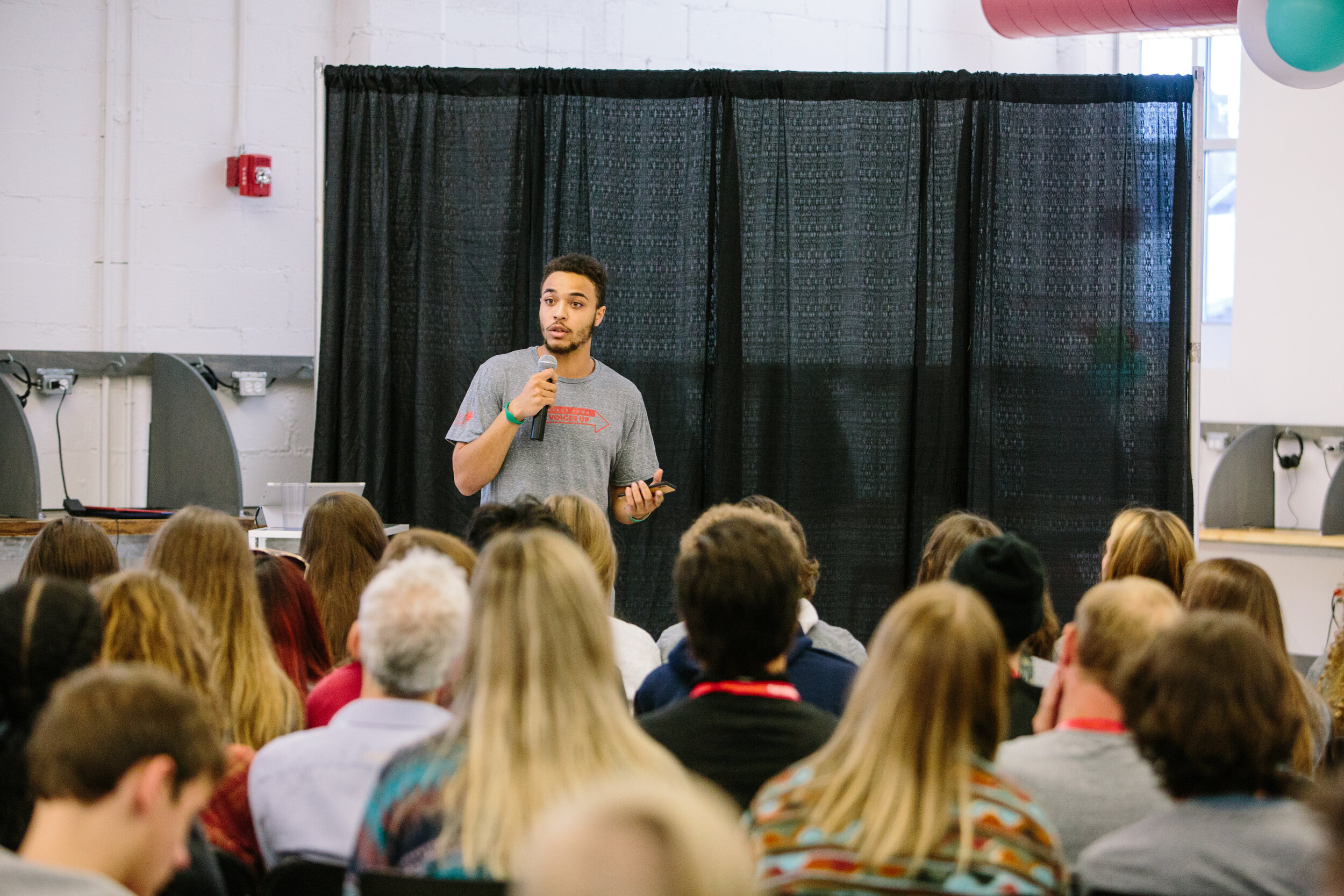
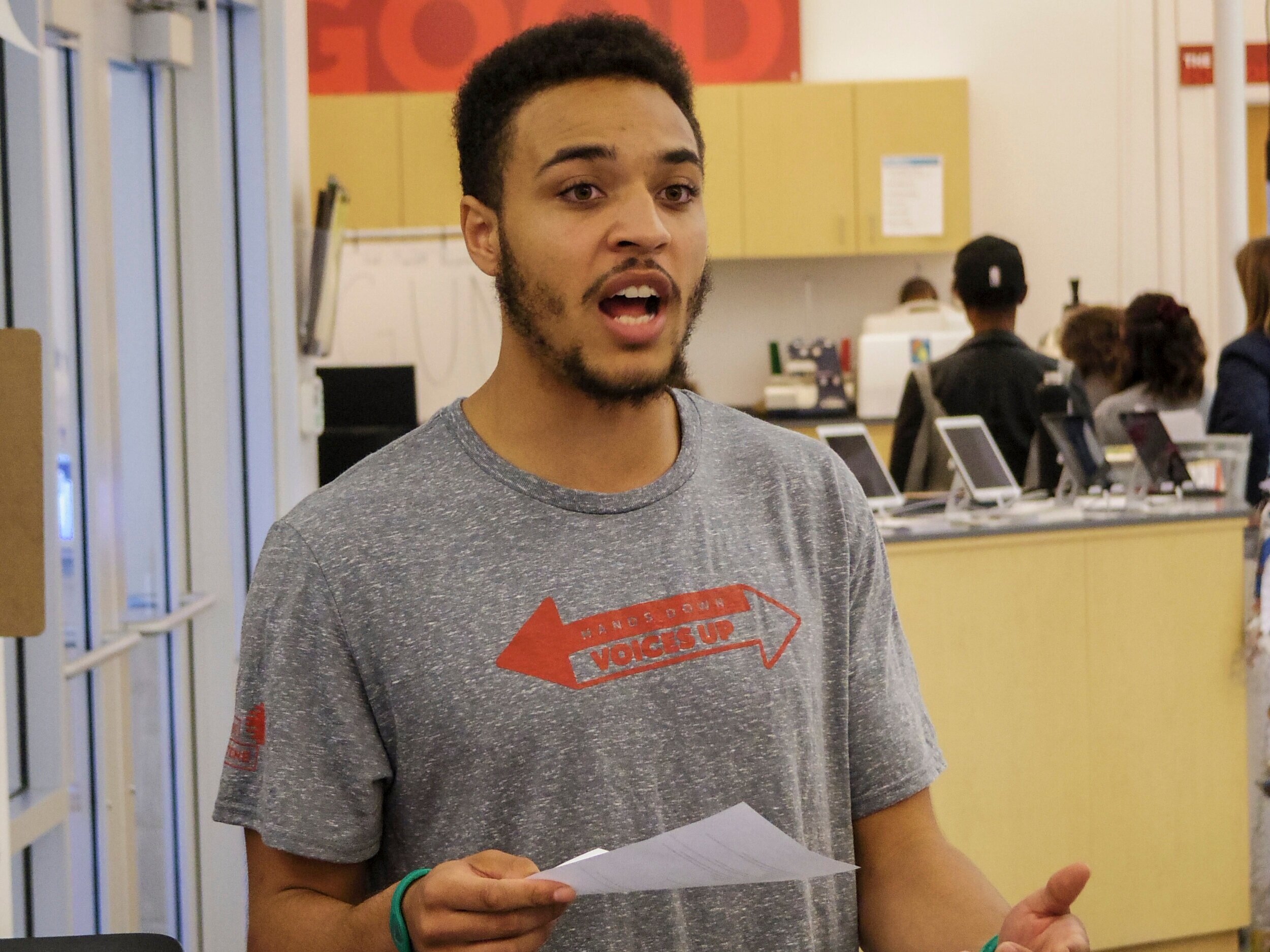
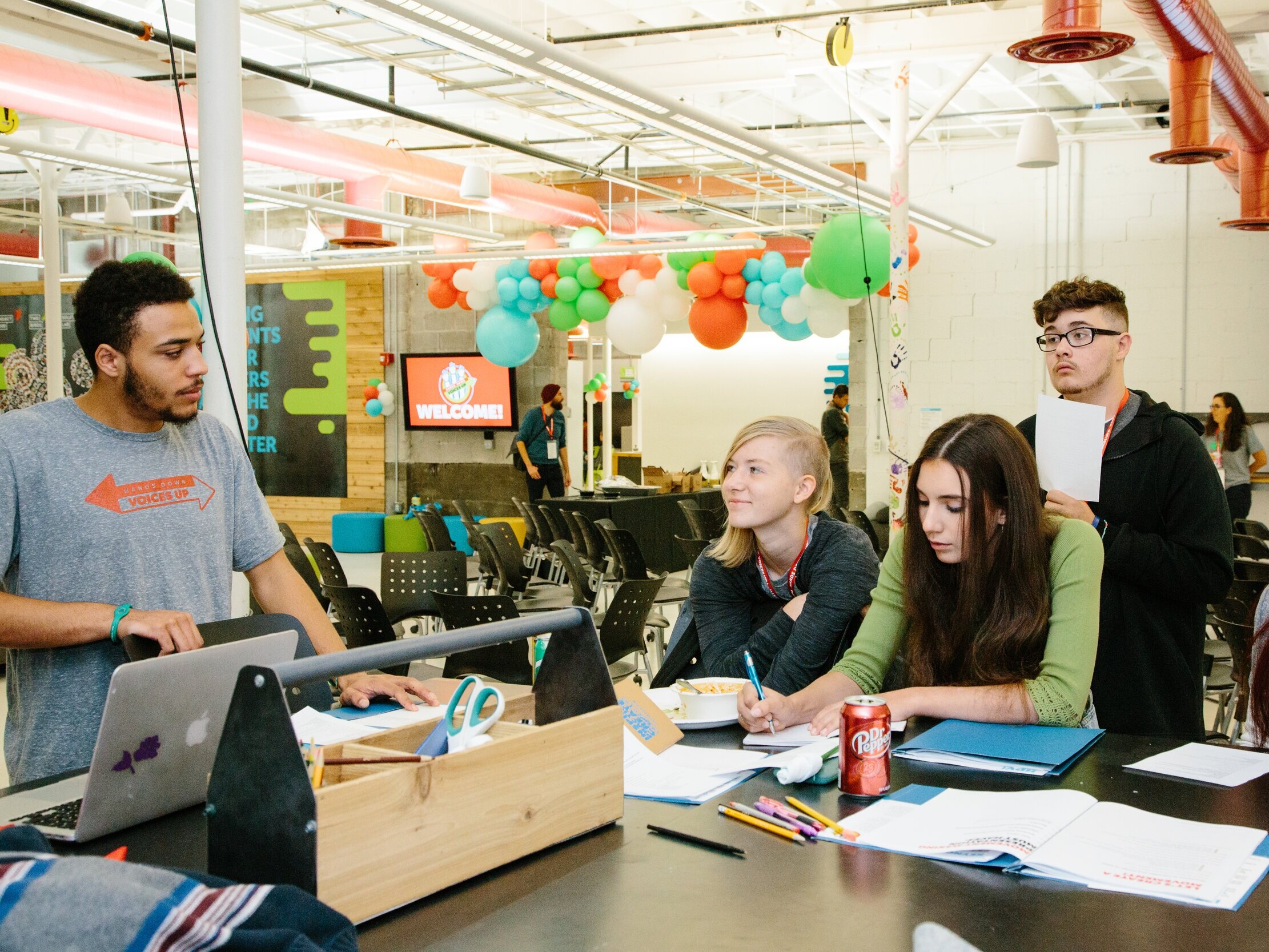
Learn More about Hands Down, Voices Up
See more photos: A great experience. Hands down.
NYC activist and student Marcus Alston
Voices Up! A conversation about student voice with Workspace learners
Building Relationships: partnering to support student voice

